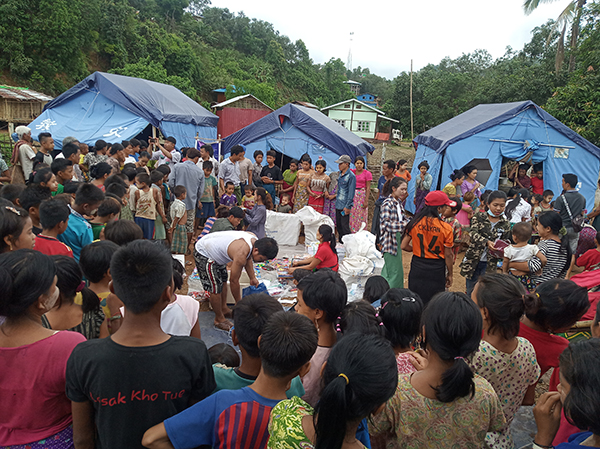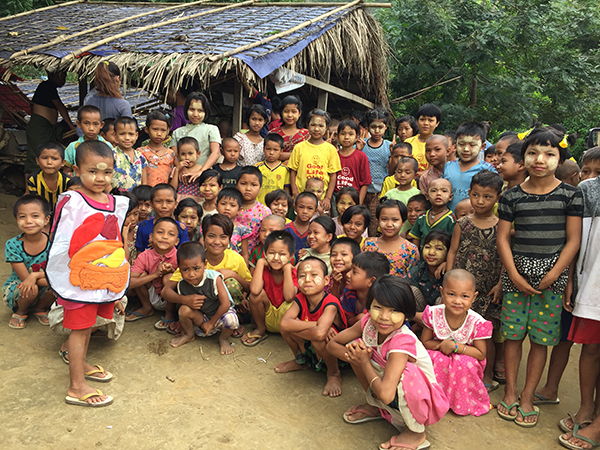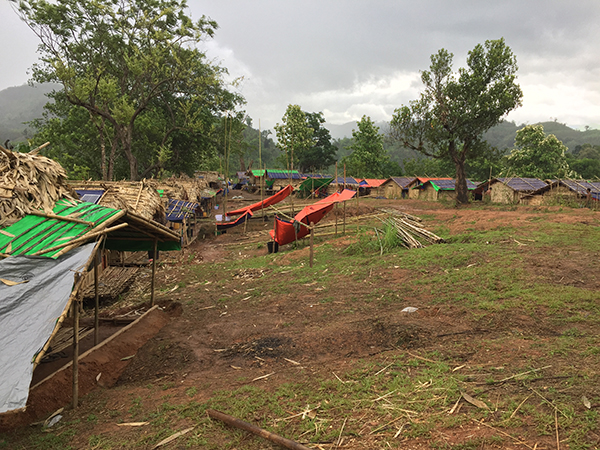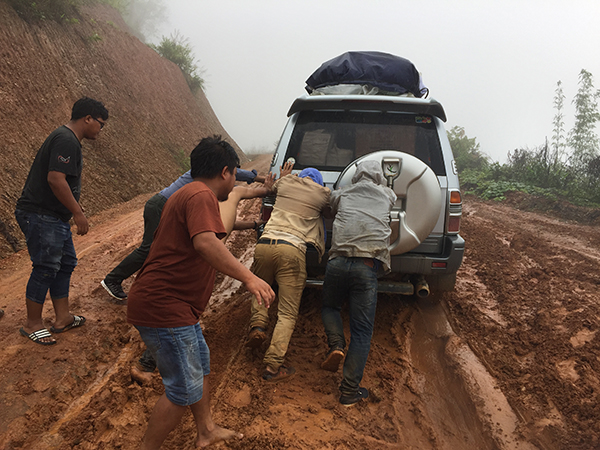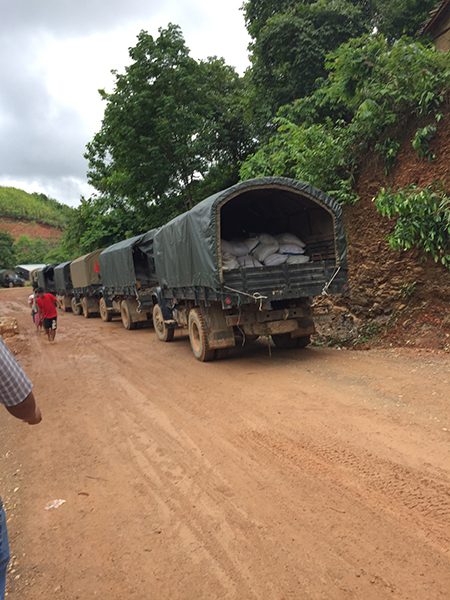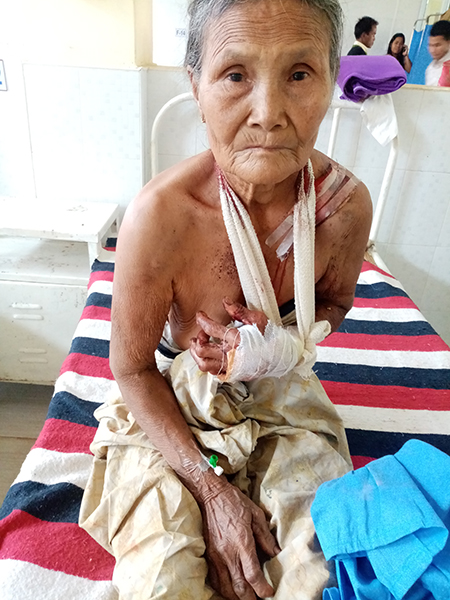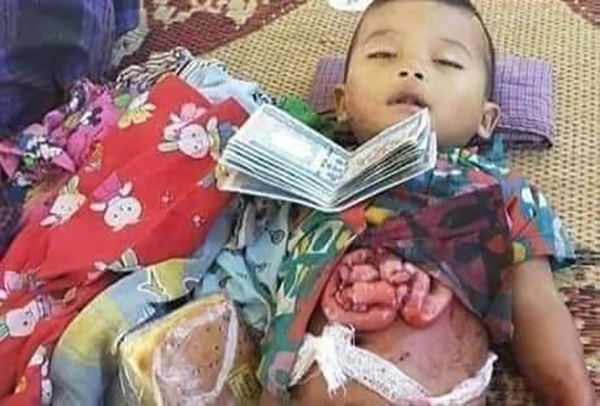Chin State civilians face shortages of food, medicine, and educational supplies
14 August 2020
Chin State, Burma
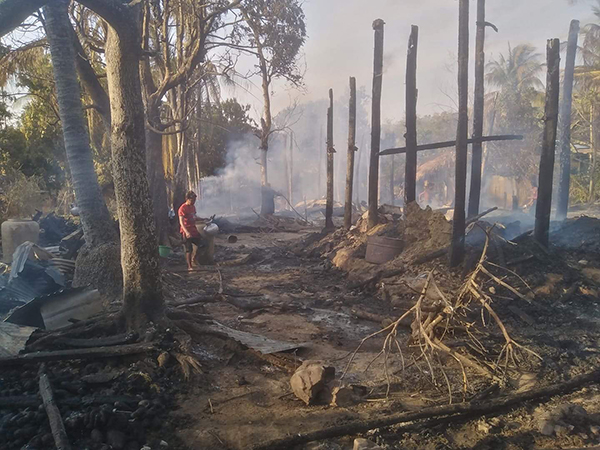
**Warning: This report contains graphic photos**
Thousands of villagers who have fled to internally displaced person (IDP) camps because of recent airstrikes and ongoing conflict in Chin State are now lacking basic necessities. From June 17 to June 30, 2020, Rangers traveled to Paletwah Township to provide assistance to the growing Paletwah and Sami IDP camps. They documented nearly 7,000 IDPs within the camps. Other NGOs and churches are operating in the area but are unable to meet the growing needs of the camp populations.
IDPs in this region face an uncertain future as they are unable to find work outside the camps. Access to the camps is difficult as the Burma Army has blocked the entrances as well as set up seven checkpoints along the 30-mile route from Paletwah to Sami. This has also created opportunities for extortion; Rangers reported that Burma Army soldiers ask for 4,000 kyat per bag of rice being transported between camps.
During the mission, the team prayed that they would be able to visit the Sami IDP camp and provide medical assistance. They were granted permission by one village leader to enter, but they slept on the outside of villagers’ homes due to concern about the coronavirus.
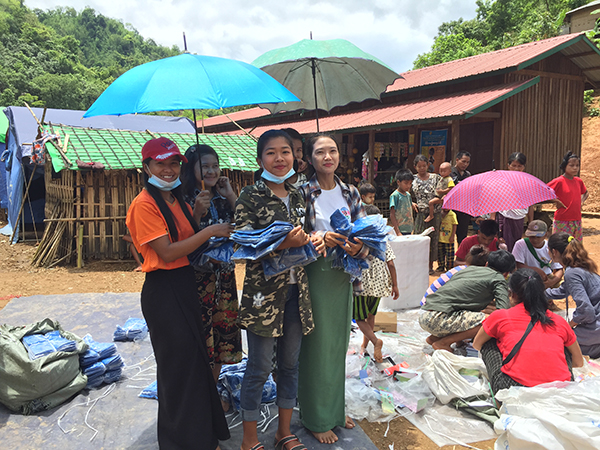
Many in the camp suffer from anemia, kidney problems, gastritis, dysentery, the common cold, or some combination of ailments and are unable receive proper medical attention. The Burma Army required the team to deliver the team’s medicine to the hospital rather than directly to the IDPs. However, the medical staff at the Sami hospital were greatly encouraged at the Rangers’ arrival.
In addition to being undersupplied, transport from where the IDPs live to the hospital remains a problem for prospective patients, as the trip is long enough to require a car and not everyone has the means to pay for a ride. Furthermore, ambulances are not a reliable option due to the poor road conditions in rainy season.
Many of the children lack education as fighting continues in their villages. In the Sami IDP camp, the education leaders told the Rangers they are preparing for school but are unsure how to accommodate the large number of children. They are also in need of books and other basic school supplies — the prices of which have risen— rendering them unaffordable to most families.
And while COVID-19 means fewer Good Life Club (GLC) gatherings for the time being, the Rangers were granted permission to run a GLC program in one camp. Many children and parents attended, and the team reports they were very excited and had never seen anything like it before. The Rangers handed out GLC T-shirts, shared lessons about health care, and were able to encourage the children to not fear in the face of fighting.
